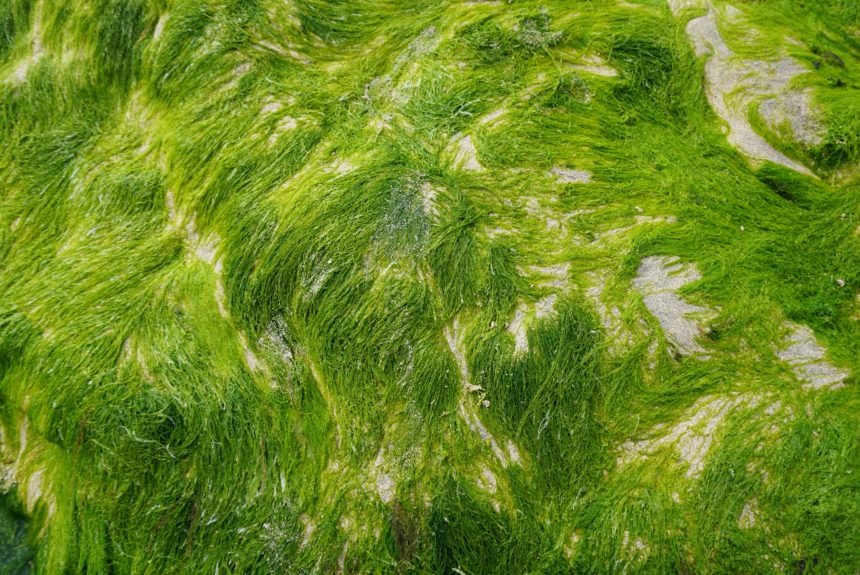By Nathalie Voit
Studies from the University of California, Davis, and other prominent research institutes have laid out the case for introducing seaweed into the cattle diet. The finding arrives after researchers discovered the role that seaweed plays in reducing greenhouse gas emissions.
According to the Food and Agriculture Organization of the United Nations, flatulence and burps from cows are major contributors to global greenhouse gas emissions. Cows naturally release methane, a major greenhouse gas, into the atmosphere as they digest their fibrous feed, a process that accounts for a whopping 14.5% of annual global CO2 output.
When researchers at the University of California, Davis introduced Asparagopsis taxiformis, a tropics-dwelling red alga, into the diet of cattle, methane production in the stomach of bovines fell by up to 82%. The finding, published this year in the journal Plos One, revealed how a seaweed-supplemented diet could reduce emissions from methane-prone cows.
Scientists at the University of the Sunshine Coast in Australia reached the same conclusion in 2019 after introducing Asparagopsis taxiformis to cow feed.
According to lead researcher and Associate Professor Nick Paul, Asparagopsis taxiformis completely inhibits methane production in cows. “It contains chemicals that reduce the microbes in the cows’ stomachs that cause them to burp when they eat grass.”
When combining this discovery with the fact that over 1.6 billion cattle roam the earth, the finding offers encouragement for the meat industry, which is increasingly being expected to constrain livestock emissions.
“We now have sound evidence that seaweed in cattle diet is effective at reducing greenhouse gases and that the efficacy does not diminish over time,” claimed Ermias Kebreab, an agricultural scientist at the University of California.
In addition to the emissions reduction potential, this change to a seaweed diet does not change the taste of meat. As a study from UC-Davis points out, participants found no difference “in the flavor of the beef from seaweed-fed steers compared with a control group. Similar tests with dairy cattle showed that seaweed had no impact on the taste of milk.” This solution provides a win-win for consumers and the planet.
The caveat? The algae must be of the red variety found in the tropics.
Researchers at the University of Copenhagen who conducted a similar study using the European variety of algae found in the North Sea, Alaria esculenta, Ascophyllum nodossum, and Saccharina lattisima, only reported a 20% reduction in bovine methane emissions. The finding is far from the 80% statistic consistent with Asparagopsis taxiformis, the red variety used in the other studies.
Not only can this particular type of red algae help neutralize livestock methane, but seaweed is a scalable and plentiful alternative to manure feed. Seaweed is found just about everywhere, and seaweed aquaculture has the potential to transform tropical developing economies with limited food security.
Seaweed also acts as a natural type of carbon capture; an ecosystem service that could potentially be used to claim carbon credits for the seaweed industry. The prolific plant also aids in nitrogen and phosphorous removal, further demonstrating its potential as a viable pollution remedy.
According to The World Bank, increasing the growth of seaweed farming by 14% annually would generate an additional 10% of the world’s present food supply – an ordeal that would secure much-needed capital for developing nations while improving environmental quality.
While updating cows’ diets will far from secure the ideal of net-zero carbon emissions, a seaweed-based cattle diet nonetheless offers a promising opportunity for carbon mitigation.
As we continue to see the effects of climate change, and once staple industries must go green or risk being penalized by the government, the meat industry would do well in embracing this fascinating ocean-dweller.
Nathalie Voit is a freelance content creator and a graduate of the University of Florida. She is an alumni of The Heritage Foundation’s Young Leaders Program.
The views and opinions expressed are those of the author’s and do not necessarily reflect the official policy or position of C3.
